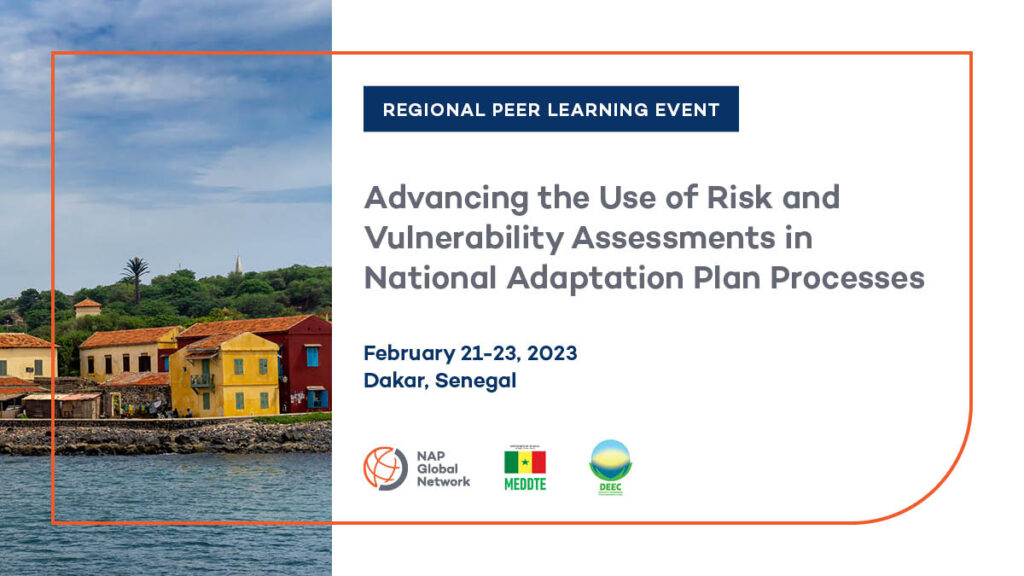Senegal hosts a peer learning event on National Adaptation Plans for eight countries
Unlocking the full potential of risk and vulnerability assessments in climate change adaptation plans.
DAKAR, SENEGAL — Government actors leading on National Adaptation Plan (NAP) processes will meet in Dakar, Senegal, from February 21–23 to learn how to increase the efficiency and accuracy of their climate change adaptation operations with risk and vulnerability assessments (RVAs).
The NAP Global Network and the Government of Senegal have invited government representatives from seven countries (Benin, Burkina Faso, Ghana, Lebanon, Lesotho, Somalia, and Togo) to learn from each other’s experiences on the proper development and use of RVAs in NAP processes. Subject matter experts will also hold technical sessions to explain the concept and design of RVAs, as well as their strategic role in adaptation planning processes.
Country governments will often only use RVAs to inform the development of the NAP document by identifying which sectors are most vulnerable to climate change and prioritizing adaptation measures. Yet, if performed more than once, these RVAs can also be used in the monitoring, evaluation, and learning (MEL) of adaptation—tracking progress on whether adaptation action is managing these risks, reducing vulnerability, and building resilience to climate change.
Representatives of the host country, Senegal, will share their experiences—such as with the vulnerability assessment of the Senegal River Delta—while also eager to learn more ahead of the vulnerability studies planned for their water, biodiversity, tourism, and livestock sectors.
Over three days, government representatives will participate in workshops and activities to:
- Develop a shared understanding of the role of RVAs in NAP processes.
- Share experiences and lessons learned on different approaches to undertaking RVAs to advance gender-responsive NAPs.
- Explore the links between RVAs and MEL in the NAP process.
Support for this peer learning event has been provided by the German Federal Ministry of Economic Cooperation and Development. More information about the NAP Global Network is available here.

“Climate change is a reality, and its impacts are becoming more acute, which means we need an approach to adaptation and resilience that is long term. This requires sectoral analysis, as well as broader analysis at different scales”
Madeleine Diouf Sarr, Head of Climate Division, Coordinator of Senegal’s NAP proces
“Through the NAP Global Network, we host peer learning events to help countries identify shared challenges and support each other in advancing national adaptation planning and action. We hope this event in Senegal will help accelerate effective adaptation action in some of the most vulnerable countries to climate change.”
Anne Hammill, Senior Director, NAP Global Network Secretariat
Voir le communiqué de presse (French)